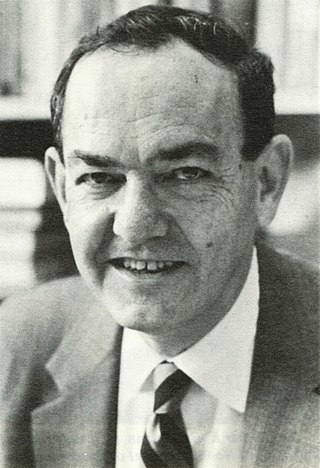
Herbert Alexander Simon was an American scholar whose work influenced the fields of computer science, economics, and cognitive psychology. His primary research interest was decision-making within organizations and he is best known for the theories of "bounded rationality" and "satisficing". He received the Turing Award in 1975 and the Nobel Memorial Prize in Economic Sciences in 1978. His research was noted for its interdisciplinary nature, spanning the fields of cognitive science, computer science, public administration, management, and political science. He was at Carnegie Mellon University for most of his career, from 1949 to 2001, where he helped found the Carnegie Mellon School of Computer Science, one of the first such departments in the world.

This aims to be a complete article list of economics topics:

Oliver Eaton Williamson was an American economist, a professor at the University of California, Berkeley, and recipient of the 2009 Nobel Memorial Prize in Economic Sciences, which he shared with Elinor Ostrom.

Law and economics, or economic analysis of law, is the application of microeconomic theory to the analysis of law. The field emerged in the United States during the early 1960s, primarily from the work of scholars from the Chicago school of economics such as Aaron Director, George Stigler, and Ronald Coase. The field uses economics concepts to explain the effects of laws, assess which legal rules are economically efficient, and predict which legal rules will be promulgated. There are two major branches of law and economics; one based on the application of the methods and theories of neoclassical economics to the positive and normative analysis of the law, and a second branch which focuses on an institutional analysis of law and legal institutions, with a broader focus on economic, political, and social outcomes, and overlapping with analyses of the institutions of politics and governance.
The Chicago school of economics is a neoclassical school of economic thought associated with the work of the faculty at the University of Chicago, some of whom have constructed and popularized its principles. Milton Friedman and George Stigler are considered the leading scholars of the Chicago school.
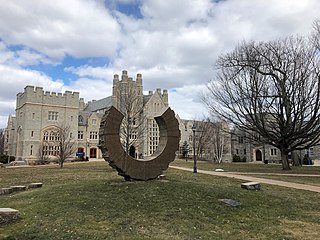
The University of Connecticut School of Law is the law school associated with the University of Connecticut and located in Hartford, Connecticut. It is the only public law school in Connecticut and one of only four in New England. As of 2020, it enrolled 488 students.

Philosophy and economics studies topics such as public economics, behavioural economics, rationality, justice, history of economic thought, rational choice, the appraisal of economic outcomes, institutions and processes, the status of highly idealized economic models, the ontology of economic phenomena and the possibilities of acquiring knowledge of them.
Freedom of contract is the process in which individuals and groups form contracts without government restrictions. This is opposed to government regulations such as minimum-wage laws, competition laws, economic sanctions, restrictions on price fixing, or restrictions on contracting with undocumented workers. The freedom to contract is the underpinning of laissez-faire economics and is a cornerstone of free-market libertarianism. The proponents of the concept believe that through "freedom of contract", individuals possess a general freedom to choose with whom to contract, whether to contract or not, and on which terms to contract.
Sanford "Sandy" Jay Grossman is an American economist and hedge fund manager specializing in quantitative finance. Grossman’s research has spanned the analysis of information in securities markets, corporate structure, property rights, and optimal dynamic risk management. He has published widely in leading economic and business journals, including American Economic Review, Journal of Econometrics, Econometrica, and Journal of Finance. His research in macroeconomics, finance, and risk management has earned numerous awards. Grossman is currently Chairman and CEO of QFS Asset Management, an affiliate of which he founded in 1988. QFS Asset Management shut down its sole remaining hedge fund in January 2014.

New Institutional Economics (NIE) is an economic perspective that attempts to extend economics by focusing on the institutions that underlie economic activity and with analysis beyond earlier institutional economics and neoclassical economics.

Kenneth George "Ken" Binmore, is an English mathematician, economist, and game theorist, a Professor Emeritus of Economics at University College London (UCL) and a Visiting Emeritus Professor of Economics at the University of Bristol. As a founder of modern economic theory of bargaining, he made important contributions to the foundations of game theory, experimental economics, evolutionary game theory and analytical philosophy. He took up economics after holding the Chair of Mathematics at the London School of Economics. The switch has put him at the forefront of developments in game theory. His other interests include political and moral philosophy, decision theory, and statistics. He has written over 100 scholarly papers and 14 books.
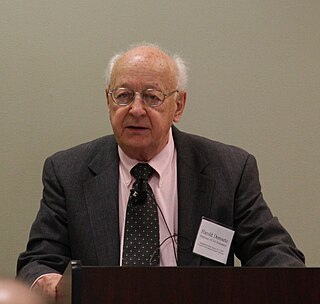
Harold Demsetz was an American professor of economics at the University of California at Los Angeles (UCLA).
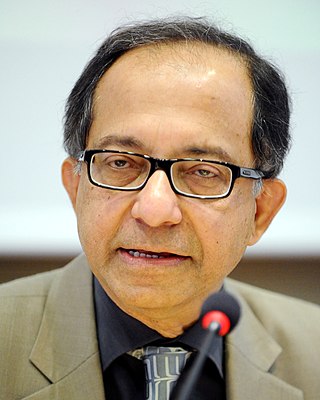
Kaushik Basu is an Indian economist who was Chief Economist of the World Bank from 2012 to 2016 and Chief Economic Adviser to the Government of India from 2009 to 2012. He is the C. Marks Professor of International Studies and Professor of Economics at Cornell University, and academic advisory board member of upcoming Plaksha University. He began a three-year term as President of the International Economic Association in June 2017. From 2009 to 2012, during the United Progressive Alliance's second term, Basu served as the Chief Economic Adviser to the Government of India. Basu is winner of the Humboldt Research Award 2021.

In legal theory, particularly in law and economics, efficient breach is a voluntary breach of contract and payment of damages by a party who concludes that they would incur greater economic loss by performing under the contract.

Daniel W. Bromley is an economist, the former Anderson-Bascom Professor of applied economics at the University of Wisconsin–Madison, and since 2009, Emeritus Professor. His research in institutional economics explains the foundations of property rights, natural resources and the environment; and economic development. He has been editor of the journal Land Economics since 1974.

Richard Allen Posner is an American legal scholar and retired federal judge who served on the U.S. Court of Appeals for the Seventh Circuit from 1981 to 2017. A senior lecturer at the University of Chicago Law School, Posner was identified in The Journal of Legal Studies as the most-cited legal scholar of the 20th century. As of 2021, he is also the most-cited United States legal scholar of all time. He is widely considered to be one of the most influential legal scholars in the United States.

Chris William Sanchirico is the Samuel A. Blank Professor of Law, Business and Public Policy at the University of Pennsylvania Carey Law School (primary) and the Wharton School (secondary). He is an expert on tax law and policy.
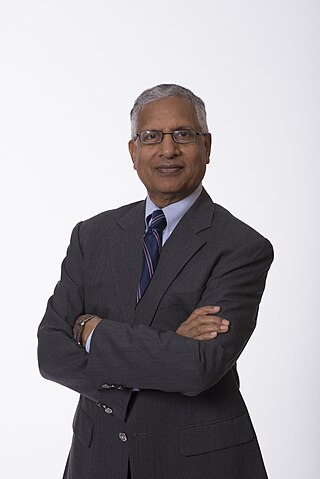
Shyam Sunder is an accounting theorist and experimental economist. He is the James L. Frank Professor of accounting, economics, and finance at the Yale School of Management; a professor in Yale University’s Department of Economics; and a Fellow of the Whitney Humanities Center.
Steven Shavell is an economist who is currently Samuel R. Rosenthal Professor of Law and Economics at Harvard Law School. Shavell is the founder and director of the School's John M. Olin Center for Law, Economics, and Business.
Oren Bar-Gill is an Israeli-American lawyer, economist, and academic. He is William J. Friedman and Alicia Townsend Friedman Professor of Law and Economics at Harvard Law School, and a Sackler Fellow at Tel Aviv University. He is most known for his research in contract law, law and economics, and behavioral law and economics.











